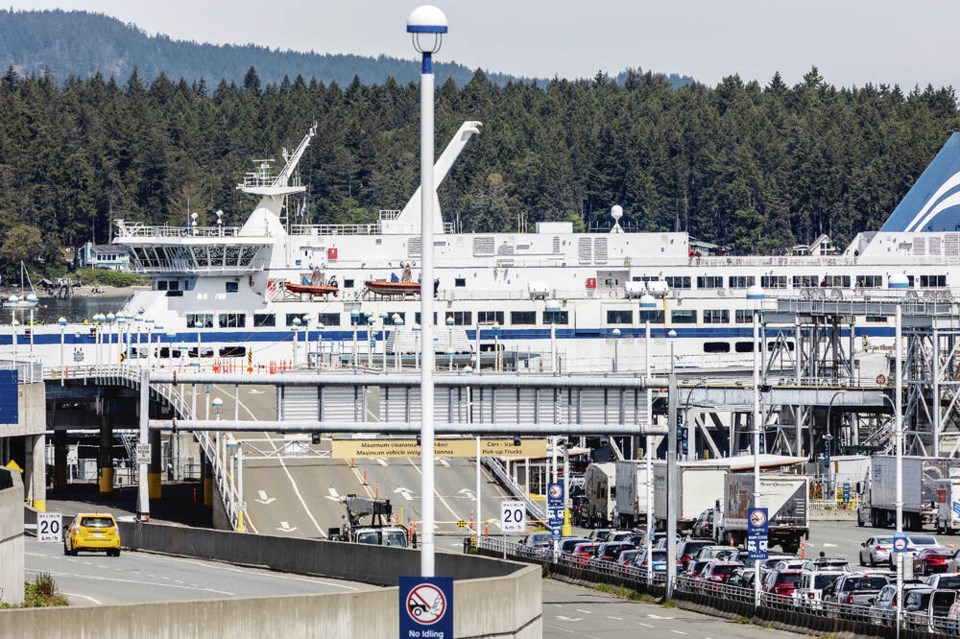sa╣·╝╩┤½├¢ Ferries’ relationship with ferry-dependent communities has deteriorated in the past two years, says a report from the sa╣·╝╩┤½├¢ Ferry Commission, which recommends the company take steps “to make customers feel respected, heard and valued.”
The report said those steps should be developed in consultation with communities, ferry advisory committees, First Nations and other stakeholders.
“Progress has been made in Indigenous relations, while engagement with ferry dependent communities has deteriorated,” the report said.
The corporation was told to make sure its online communication on community pages is “relevant, comprehensive and timely,” after complaints that information was not complete or current.
Following a performance review in 2022, the corporation has had “mixed results” in implementing the commission’s recommendations to improve public engagement, the report said.
A low point came last September at a Sunshine Coast meeting involving sa╣·╝╩┤½├¢ Ferries representatives, the local ferry advisory committee and members of the public.
Emotions were running high when one woman said she would take a gun to everyone. Citing an increase in aggressive and threatening behaviour, the corporation shut down in-person meetings with communities.
Those meetings are now being restarted, with a code of conduct in the works, although advisory committees have said they were not consulted in drawing up new security measures.
Diana Mumford, who chairs the Southern Sunshine Coast ferry advisory committee, said she does not expect a quick fix to improve relations with sa╣·╝╩┤½├¢ Ferries. “A lot of damage has been done and I don’t think we can just quickly wipe away the angst that people have on the ferries advisory committees.”
Both the committees and the corporation need to work hard to rebuild that relationship and “that will take time,” she said.
The most recent online meeting was awkward, said Mumford, who also leads a group of advisory committee chairs. “You don’t want to step over the boundaries and you’re not necessarily sure what those boundaries are.”
The main concern at the September meeting where the threat was made was a reduction of sailings after the ferry Coastal Renaissance was pulled from service and a local ferry was relocated to fill in, Mumford said.
Ritinder Matthew, director of media and issues for sa╣·╝╩┤½├¢ Ferries, said the corporation is reviewing the commission’s report. “We take this feedback seriously and are committed to strengthening our relationships with the communities that depend on our service,” she said.
The commission welcomed sa╣·╝╩┤½├¢ Ferries’ move to seek public input on the future of the corporation in its Charting the Course project.
sa╣·╝╩┤½├¢ Ferries said it will be working with communities to review feedback from a number of initiatives during the next several months, including holding virtual meetings with each ferry advisory committee to go over feedback. In-person community workshops are scheduled for June and July, Matthew said.
A community prioritization panel, made up of the chairs of advisory committees, will consolidate feedback from all the regions into one list.
sa╣·╝╩┤½├¢ Ferries has been talking to communities in the past month about projects in their areas and that will continue, Matthew said.
“These activities are part of our commitment to being responsive and transparent. We are dedicated to making meaningful improvements based on the feedback we receive from the communities we serve.”



